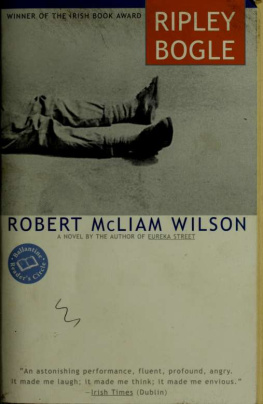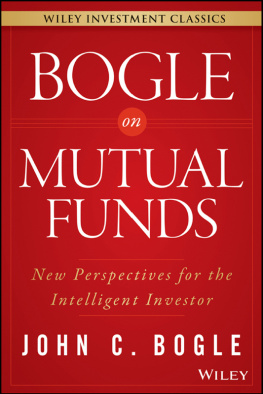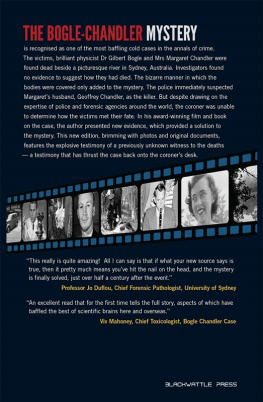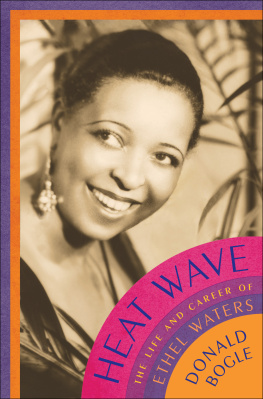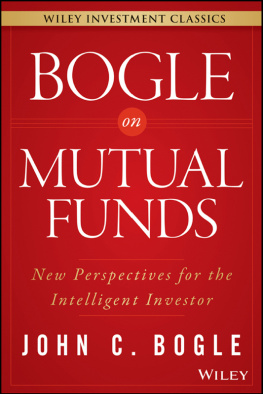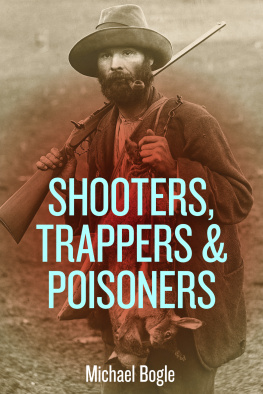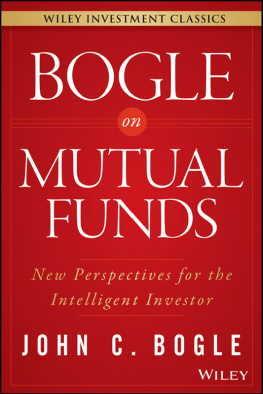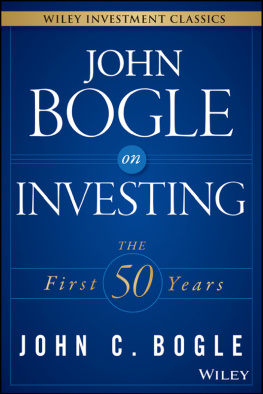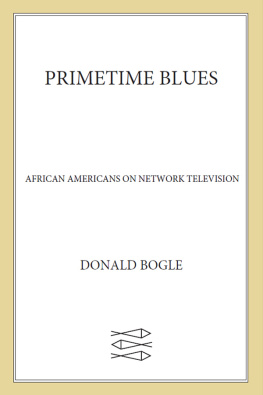Donald Bogle - Bright Boulevards, Bold Dreams
Here you can read online Donald Bogle - Bright Boulevards, Bold Dreams full text of the book (entire story) in english for free. Download pdf and epub, get meaning, cover and reviews about this ebook. year: 2004, publisher: Random House Publishing Group, genre: Non-fiction. Description of the work, (preface) as well as reviews are available. Best literature library LitArk.com created for fans of good reading and offers a wide selection of genres:
Romance novel
Science fiction
Adventure
Detective
Science
History
Home and family
Prose
Art
Politics
Computer
Non-fiction
Religion
Business
Children
Humor
Choose a favorite category and find really read worthwhile books. Enjoy immersion in the world of imagination, feel the emotions of the characters or learn something new for yourself, make an fascinating discovery.

- Book:Bright Boulevards, Bold Dreams
- Author:
- Publisher:Random House Publishing Group
- Genre:
- Year:2004
- Rating:5 / 5
- Favourites:Add to favourites
- Your mark:
- 100
- 1
- 2
- 3
- 4
- 5
Bright Boulevards, Bold Dreams: summary, description and annotation
We offer to read an annotation, description, summary or preface (depends on what the author of the book "Bright Boulevards, Bold Dreams" wrote himself). If you haven't found the necessary information about the book — write in the comments, we will try to find it.
Donald Bogle: author's other books
Who wrote Bright Boulevards, Bold Dreams? Find out the surname, the name of the author of the book and a list of all author's works by series.
Bright Boulevards, Bold Dreams — read online for free the complete book (whole text) full work
Below is the text of the book, divided by pages. System saving the place of the last page read, allows you to conveniently read the book "Bright Boulevards, Bold Dreams" online for free, without having to search again every time where you left off. Put a bookmark, and you can go to the page where you finished reading at any time.
Font size:
Interval:
Bookmark:
T he generosity, encouragement, and assistance of many people have been important in the writing of this book. Foremost, I'd like to express my gratitude to the people who consented to be interviewed about their experiences in early Black Hollywood. In some cases, I reinterviewed personalities I had previously spoken to for earlier books. In other cases, I used comments from earlier interviews. Of all those interviewed, past and present, Geri Branton provided some of the most perceptive and telling comments that enabled me to reconstruct black life in the Hollywood of the 1940s and 1950s. I cannot thank her enough. Fayard Nicholas, of the Nicholas Brothers, the greatest dance team in motion-picture history, also warmly shared his memories with insight and candor, impressing me time and again with his ability to recall specific names, dates, and places without ever having to think twice. It was also a pleasure to interview again Fayard's sister Dorothy Nicholas Morrow and her husband, Byron Morrow. I found it touching and enlightening to hear Dorothy Morrow as well as Fayard so lovingly recall the life of their mother, Viola Nicholas. Rigmor Newman Nicholas also graciously provided me with recollections of her husband, Harold Nicholas, and graciously granted me permission to look through her extensive collection of photographs of the Nicholas Brothers. Katherine Hopkins Nicholas worked with me to arrange the time and place of my interview with her husband, Fayard, and to insure that it went smoothly.
Once again, it was a pleasure to talk to singer/actress Olga James, who remains warm, insightful, and really delightful and who went out of her way to help me. Through Geri Branton, I was able to meet and interview Marilyn Williams Hudson, the daughter of the extraordinary architect Paul Williams. Her recollections of her parents and of her father's remarkable career were vivid and often quite moving. The Los Angeles attorney Melanie Lomax granted me a fine interview in which she discussed her grandfather Lucius Lomax, the colorful and charismatic owner of the Dunbar Hotel. She made available articles on her grandfather and the Dunbar by her brother Lucius Lomax III and her sister Michele Lomax. In a conference call, she also enabled me to hear the reminisces of her mother, Almena Lomax, who published The Los Angeles Tribune with her husband, Lucius Lomax Jr.
Once again, I felt fortunate to interview Bobby Short, who never fails to impress me with his richly detailed memories and his wonderful sense of humor. Having met so many major figures in show business, Bobby remains remarkably knowledgeable about the history of black entertainment in this country. You sit enthralled by the experiences he recounts. The same is true of producer Jean Bach, who regaled me with stories about a number of stars of the 1930s through the 1950sand who searched through her personal photo archives for photographs. Jeanne Moore Pisano also was of great assistance and graciously granted me permission to quote from her late husband Phil Moore's unpublished autobiography, Things I Forgot to Tell You.
I had never known that the great ballerina Carmen de Lavallade had grown up in Los Angeles until I had happened to be seated next to her at a dinner one evening. Immediately, I asked for an interview. At her spacious loft in downtown Manhattan, which she shares with her husband, the dancer/choreographer Geoffrey Holder, de Lavallade had splendid stories about Los Angeles in the 1930s to the 1950sand about studio life in the 1950s.
I was also happy to interview againover her wonderful lunches and dinnersmy dear friend Isabel Washington Powell about her sister Fredi's time in Hollywood. After leaving Isabel, I would often review again my earlier interview and conversations with Fredi, some of which I had used in earlier books. But I had never used the material about her actual experiences at Universal when filming Imitation of Life. Nor had I ever used any of the conversation we had one evening at a sumptuous party at Bobby Short'swhen Fredi first told me of her love affair with Duke Ellington. I felt fortunate now to be able to write about Fredi again and to do so in a new way.
Still looking every inch the romantic hero, an energetic and high-spirited Herb Jeffriesa born raconteur now in his ninetieswas a terrific host, along with his wife, Savannah Jeffries, at their hilltop home not far from Palm Springs. In New Rochelle, New York, Ossie Davis and Ruby Dee were enlightening and engaging as they recounted their early experiences in the movie capital. Having known both for a number of years, it was a great pleasure to finally have a formal interview with them.
I will forever be in the debt of Dorothy Hughes McConnell, my dear friend in Los Angeles, whom I had first interviewed about Dorothy Dandridge and her mother, Ruby Dandridge. She arranged a small gathering at her home, during which I was able to interview three lifetime residents of the city: Willard Brown, Johnetta Jones, and Marian Patterson, each of whom recounted evocative stories of Los Angeles in past decades.
Barbara Roseburr Molette also had fine observations on her childhood years in Los Angeles, during the post-World War II era when the city underwent such major changes. Her memories of her neighbors Hattie McDaniel and Eddie Rochester Anderson added much to my awareness of the African American neighborhood's sense of community.
It was also helpful to review my past interviews of a number of perceptive personalities: the great director King Vidor; comedian Mantan Moreland; singer Etta Jones of The Dandridge Sisters; actresses Avanelle Harris and Juliette Ball; former MCA agent Harold Jovien; writer Leonard Feather; actors Ivan Dixon, Clarence Muse, and Brock Peters; the late directors Gerald Mayer and Herb Ross; performer Maggie Hathaway; and pianist/musical director Nick Perito.
I would also like to express my gratitude to the individuals and institutions that aided me in my research. During the early stages, my former student David Aglow did a fine job of unearthing some real gems: events and personalities I initially had not planned to write about. Morgan Rashida Stiffanother former studentalso did a fine job of enthusiastically researching early black performers. Later my friend Kathe Sandler spent hours with me as we went through reels of microfilm. Kim Mason used her terrific online skills to dig up information on early Los Angeles history, as well as on a number of personalities, and then to locate photographs of African Americans at photo archives around the country. I'd also like to thank the staff of the Library of Performing Arts at Lincoln Center; the staff at the Department of Special Collections at the Charles E. Young Research Library at the University of California at Los Angeles, where I spent a number of delirious days going through the remarkable George P. Johnson Negro Film Collection; the staff of the Schomburg Center for Research in Black Culture, especially Sharon Howard and Betty Odabashian, who were helpful and attentive as I searched for information; the staff at the Bancroft Library at the University of California at Berkeley; my colleagues in the Dramatic Writing Department at New York University's Tisch School of the Arts, especially David Ranghelli, Janet Neipris, Richard Wesley, Gary Garrison, and the department chair, Mark Dicker-man; my colleagues in the Department of Africana Studies at the University of Pennsylvania, especially Gale Garrison and Carol Davis; and Susan Cohan, who did a fine job of copy-editing this book. I cannot praise highly enough Howard Mandelbaum and his staff at Photofest for helping me wade through countless photographs to find the ideal shots included in this book. Photo archivists Kris-tine Krueger at the National Information Film Services at the Fairbanks Center for Motion Picture Study at the Academy of Motion Picture Arts and Sciences and Dace Taube at the Hearst Newapaper Collection at the Doheny Library at the University of South California also tirelessly searched for photographs; I am grateful for their fine work as well as their patience and good humor. The same is true of Bobby Short's very astute assistant, Christina Wyeth. My gratitude also goes to Editorial Assistant Signe Pike of Ballantine Books, whose skills, assistance, and good spirits will forever be appreciated. I'd also like to thank Senior Editor Melody Guy and Associate Editor Danielle Durkin for their help.
Font size:
Interval:
Bookmark:
Similar books «Bright Boulevards, Bold Dreams»
Look at similar books to Bright Boulevards, Bold Dreams. We have selected literature similar in name and meaning in the hope of providing readers with more options to find new, interesting, not yet read works.
Discussion, reviews of the book Bright Boulevards, Bold Dreams and just readers' own opinions. Leave your comments, write what you think about the work, its meaning or the main characters. Specify what exactly you liked and what you didn't like, and why you think so.

